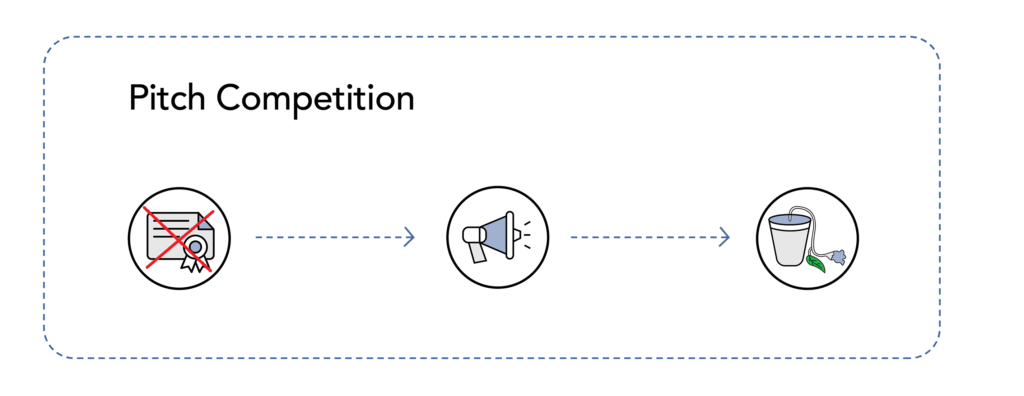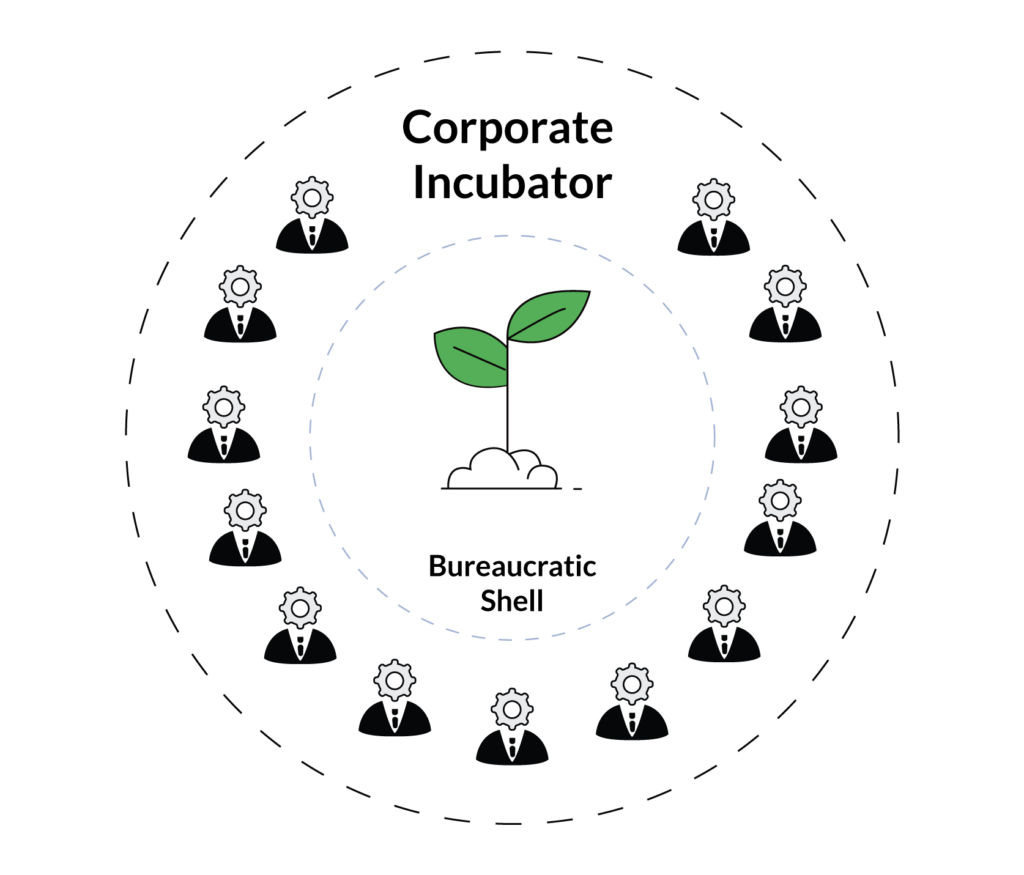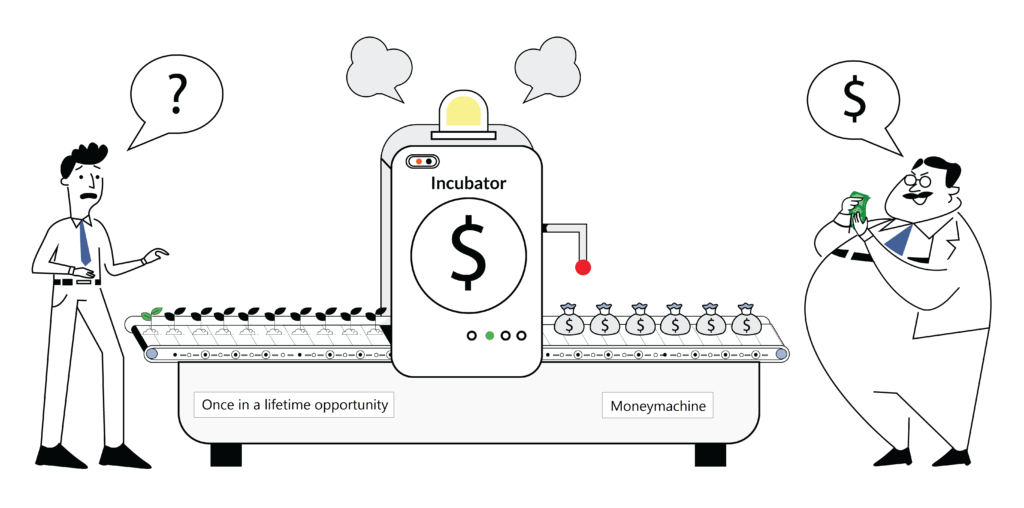Business Angels
Why partner up with an experienced entrepreneur?
I recently spoke with a winner of the Philips Innovation Awards, which is a competition for start-ups. I was curious how such a group of young, talented entrepreneurs is coached. We also discussed whether I could participate via an investment in the start-up. The result? I was shocked.
In a 30-minute conversation, I learned that the start-up had made several irreversible mistakes during their coaching process. Mistakes that an experienced entrepreneur would never make. How is that possible? Because the participants had received guidance from managers of large companies instead of from involved, experienced entrepreneurs who know how a start-up works.
A few examples:
Pricing strategy
As a start-up, you must, of course, determine the price of your product. The young entrepreneur I spoke with had been able to discuss the suggested retail price with a large Dutch retailer. The retailer had proposed a desired margin and an associated suggested retail price. And the start-up embraced this advice.
The advice, though, did not take into account future international expansion. A product must have about the same selling price worldwide. Something that all business angels who worked in retail will tell you before you launch your product. A retailer in, for example, the United States will not purchase your product if its purchase price is the same as the selling price in the Netherlands. When determining your suggested retail price, you must therefore take into account additional transport costs, import tax, storage costs, insurance, the margin for the importer, and the margin for the local distributor. Once a price is decided on, it is difficult to increase it, because you disappoint existing customers (in your home country), and so exporting becomes nearly impossible. This is a missed opportunity that I would never have allowed to happen.
Marketing advice
The advice of the assigned marketing agency was also completely wrong. Not that it wasn’t a talented agency, but the advice was useless for a start-up without a budget of millions. My advice as a business angel is this: Don’t let corporates determine the course of your start-up! They operate in a completely different world, and a start-up requires a different approach. Advice is ok, but make sure you and your business angel are in the lead.
Patents
Thanks to a fundamental error, the idea of the start-up could no longer be patented. Pitching your idea during a (student) competition, without applying for a patent, is in no way a smart move. I would first join a business angel or a group of business angels and make sure your patent is filed before you enter such competition. You shouldn’t come out with your idea if you haven’t yet applied for a patent. If you have something unique in your hands, applying for a patent is essential to stay one step ahead of the competition.
Not only did they pitch their idea, but the start-up started selling the product at a trade fair even before the patent was filed. As a result, the patent still to be filed became useless. It was ironic to hear that one of the services they won during the event was … a legal adviser! A crucial mistake by the legal adviser is to properly advise the startup how to make sure the patent should be obtained. Therefore look for a business angel who applied several patents himself.
Conclusion
After 30 minutes, we had to conclude that because of past mistakes, no investment was not an option; but the start-up was not fit for investment. Such a pity! I wished these students would have consulted me before joining the competition. We would have filed the patent and moved on from that point. That’s the moment when a pitch becomes interesting!
How would I have done it?
As an investor, I would have arranged the patents for you before your pitch. We can still pitch at an event, but not before we file the patent. I have done several patents myself and know the ropes. Next, we would set up logistics, marketing, sales, and financial matters. Together, we would fly around the world to present your product to the significant retailers via my network, with the right marketing and pricing strategy. We would launch your product (worldwide) in no time at all.
Tip: Make sure you source your knowledge in time via experts, incubators or business angels.
Pitfalls for start-ups
My conclusions after conversations with many start-ups are:
– Start-ups participating in start-up competitions constantly make crucial mistakes; the idea is revealed too early, and because advisers do not connect well with the start-up, wrong decisions are made. Many startups and investors could cherry-pick the good ideas which come to them.

– Start-ups within corporate incubators bleed to death due to the bureaucratic shell of reporting and risk reduction that forms around the start-up like an impenetrable atmosphere. After a few years, these corporate incubators could be attractive due to their network. I believe in the startup stage, independent incubators, incubators which are connected to Universities or independent business angels. They can do much more for you.

– Start-ups that participate in certain incubator programmes receive too little attention. Most of the resources go to the top 1% of start-ups within such an incubator, and the chance of you being that 1% is … 1%! The consultants and training courses are too generic. Your start-up is a horse they bet on rather than being the central focus of their attention. Such programmes allow many start-ups to participate, with the idea that one will probably become successful. Are you not growing fast enough? Then you lose your place to someone else.
Tip: Sort this out before you join an incubator.
I can help you!
Do you want to discuss your ideas? Are you looking for personal advice? I will be happy to help you with your start-up, even if you are not looking for an investment. And don’t worry – if you prefer, we can sign a non-disclosure agreement.

